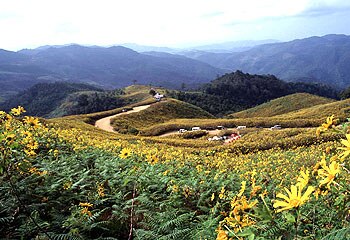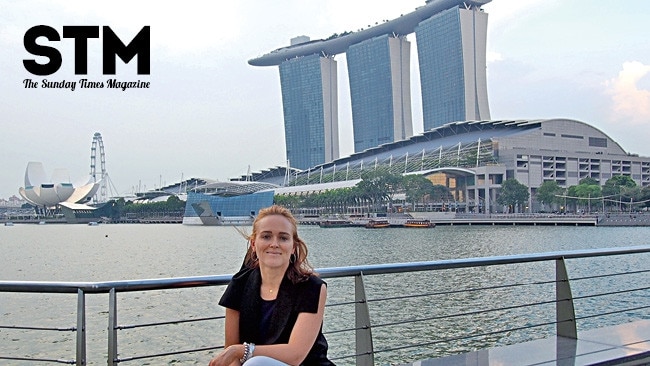Trekking the cultural trail
THERE'S something about the mountain air of Northern Thailand - the heartland of the country's soft-adventure travel - that triggers the curious and the cultural.

THE loveless pandas are ignoring each other, fibreglass dummies in police uniforms are catching more crooks than real cops and immigration border patrols are giving singing lessons.
There must be something in the mountain air of northern Thailand that triggers the curious and the cultural.
The heartland of Thailand's soft-adventure travel, the vast area stretches from Chiang Mai, across valleys, villages, towns and jungles northeast to Chiang Rai, west to the long-necked tribes of Mae Hong Son, and finally south to Lampang.
At Mae Sai, a little town of happy hustlers on the Burmese border 62km from Chiang Rai, smuggling is a spectator sport. Packages are thrown across the 10m-wide Mae Sai River under the noses of police.
Thai immigration officials have a novel way to verify the passports of suspect travellers who enter Thailand and claim to be Thai citizens.
They must sing the Thai national anthem – all of it.
At Chiang Mai Zoo, two giant pandas on loan from China have not mated, despite having been shown panda porn movies and being put on slimming diets.
Their panda-poo bookmarks, along with elephant-dung greeting cards from the Elephant Conservation Centre in Lampang, have passed quizzical Customs scrutiny at Sydney airport.
Along the tortuous 150km highway between Chiang Mai and Chiang Rai (where roadside stalls offer coffee, T-shirts and snake wine, the latter with alleged Viagra-like properties), life-size, dummy police placed on sharp bends have done more to cut the road toll than traffic cops.
Just outside Chiang Rai, nature lovers and gardening buffs head for Doi Tung Mountain, to browse the splendid Mae Fah Luang Garden planted with a dazzling array of flowers, shrubs and trees from many parts of the world.
The 4ha garden straddles the 1000m Doi Tung peak; the backdrop to the Swiss-style palace of the late mother of the present King of Thailand.
Most of the palace, with rooms exactly as the Princess Mother left them, is open to the public.
Here, in pretty Doi Tung village, the economic wisdom of holidaying in Thailand becomes clear; a six-course meal for four, including three big bottles of excellent Chang beer and two soft drinks, is just $4 a head.
History and natural beauty are the north's drawcards. Once known as the Lanna Kingdom (land of a million ricefields) it was founded in 1296, and has a unique dialect, culture, music, beliefs, cuisine and dress.
Much of this rich heritage is still evident in the eight provinces that stretch almost 400km from the Burmese border to Laos.
Chiang Mai was the centre of the Lanna Kingdom. Now 700 years on, the city keeps its northern-capital status and is called the Rose of the North.
With a population of about one million, a tenth of frenetic Bangkok 700km to the south, visitors love the slower pace of life and many activities in and around the city – from the night bazaar, the zoo, some of the most magnificent temples in Thailand, to excellent golf courses, antique shops, handicrafts, a Sunday market and bargain shopping.
From Chiang Mai you can go elephant trekking, mountain biking, rafting, rock climbing or bungy jumping.
The writer was a guest of the Tourism Authority of Thailand, Sofitel Riverside Hotel Chiang Mai and Plaza Athenee Hotel, Bangkok.
The Sunday Times



